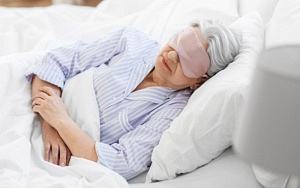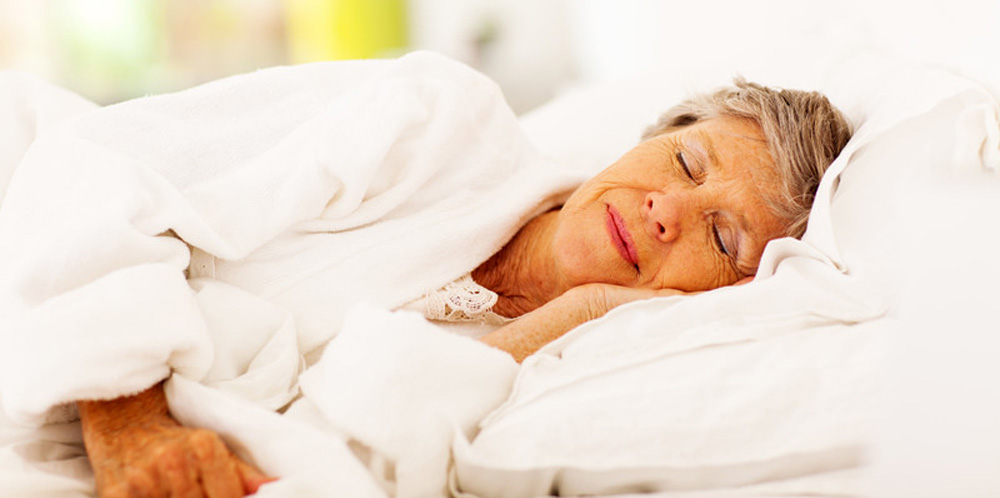For More Information or to Schedule a Test Call 618-740-0947
 What is a Sleep Study?
What is a Sleep Study?
A sleep study is done at the hospital and requires an overnight stay in our comfortable, specially designed-rooms.
During your stay, you are monitored by using painless, skin-surface devices. Staff members track your brain waves, muscle movements, and eye movements. Your body’s oxygen saturation, heart rate, chest and abdominal efforts, body and leg movements, and airflow from your mouth and nose are also monitored.
When your test is completed, it will be evaluated by a physician who is trained and board-certified in sleep medicine.
Results will be forwarded to your doctor for diagnosis and follow-up treatment.
Home Sleep Testing (HST)
Available for patients whose insurance does not cover in-lab testing, or for patients who are not able to come to the Sleep Lab.
Types of Sleep Disorders
Insomnia
Caused by chronic tension, poor sleep habits, drugs, or sleep apnea, insomnia is a condition in which a person has difficulty falling asleep, wakes up during the night or earlier than planned. Although many people experience periodic insomnia throughout their lives, if it happens frequently it should be evaluated by a doctor.
Sleep Apnea
Frequently noticed by spouses, a sleep apnea sufferer may stop breathing for 30 seconds or longer while sleeping. Characterized by loud snoring, daytime sleepiness, waking with a headache, and needing to use the bathroom during the night, this condition can be life-threatening.
Sleep apnea significantly increases the risk of motor vehicle accidents, high blood pressure, stroke, heart attack, congestive heart failure, and depression.
Restless Leg or Unusual Muscle Movements
Patients who suffer from restless leg syndrome often battle numbness, tingling, or searing pain in their legs or calves. This discomfort causes them to move their legs or body frequently, thus the term “restless leg syndrome”. This constant movement causes disrupted sleep and daytime sleepiness.
Narcolepsy
Symptoms of this disorder include uncontrollable episodes of falling asleep during regular daytime activities, nightmares, or hallucinations when beginning to sleep, or a feeling of paralysis
upon waking.
Sleep-Wake Scheduling
In today’s 24/7 world, many people have to live with a disrupted sleep schedule. When the regular pattern of sleeping and waking is interrupted by shift work, jet lag, or other factors, some people have a difficult time finding a sleep-wake pattern that suits their need for getting enough rest.
If you have a Sleep Disorder
Be assured that you’re not alone. In a recent study, as many as 40% of Americans reported some symptoms of a sleep disorder. The first step is to talk with your doctor, who may schedule a sleep study at Salem Township Hospital. If you do indeed have a sleep disorder, there are a wide variety of treatments available to help you.
Don’t put it off . . . chronic sleep problems can be life-threatening.
Schedule a Sleep Study
Your doctor must refer you to Salem Township Hospital’s Sleep Diagnostics Lab before a sleep study can be scheduled.
Once you have been referred, or if you have the Doctor’s order for the study, you may contact us at (618) 740-0947.
When your study is scheduled, our staff will give you more information about what items to bring with you and what you can expect while participating in the study.
If you have any questions, please call Chris Jahn, Director of Cardiopulmonary Services at Salem Township Hospital, 618-740-1649.
SLEEP APNEA
Sleep apnea is a disorder that afflicts 12 million Americans. People with sleep apnea repeatedly stop breathing at night. This puts a strain on the entire body causing the oxygen level in the blood to drop and the carbon dioxide level to increase. Sleep apnea is closely linked with heart disease in even mild to moderate cases.
Obstructive Sleep Apnea
Obstructive Sleep Apnea (OSA) is the most common type of sleep apnea. In OSA, loose tissue in the airway collapses during sleep, obstructing the air passages. This also causes snoring.
SLEEP APNEA RISKS
- Heart Disease
- Hypertension
- Stroke
SLEEP APNEA SYMPTOMS
- Snoring
- Fatigue
- Obesity
- Morning headaches
- Large neck
- Poor concentration
CPAP
CPAP (Continuous Positive Airway Pressure) is the most common treatment for sleep apnea. The CPAP machine blows air through tubing and a mask which keeps the airway open. Patients receiving CPAP therapy often report a drastic reduction of symptoms after using the machine.
Are you at risk?
Take the quiz below to see if you have the symptoms of a sleep disorder and should speak to your doctor.
1. Do you have sleepiness during the day?
2. Do you snore while sleeping?
3. Do you awaken with a headache?
4. Do you have a dry mouth when you wake?
5. Do you wake yourself up gasping for breath or choking?
6. Do you find it hard to stay awake while watching TV, reading a book, or attending a lecture?
7. Has anyone told you that you hold your breath, snort, and often move while sleeping?
8. Have you recently gained weight?
9. Do you ever experience muscle weakness when excited or emotional?
10. Have you ever not been able to move when you wake up?
11. Do you have difficulty falling asleep?
12. Do you have difficulty staying asleep?
13. Do you have uncomfortable sensations in your legs, causing
excessive movements?
If you answered "yes" to two or more of these questions, you may have a sleep disorder.
Please share this quiz with your doctor to find out if a sleep study at Salem Township Hospital is recommended.
Women and Sleep | Journal of Sleep Medicine
Admit it. You yawn. A lot. You don't wake up until you've had your coffee in the morning, you need another jolt in the afternoon to keep you going, then fall asleep watching TV at night. When you go to bed, you just lie there thinking of things you need to do. Think it's because of your busy lifestyle? It's more likely to be related to how well you sleep.


